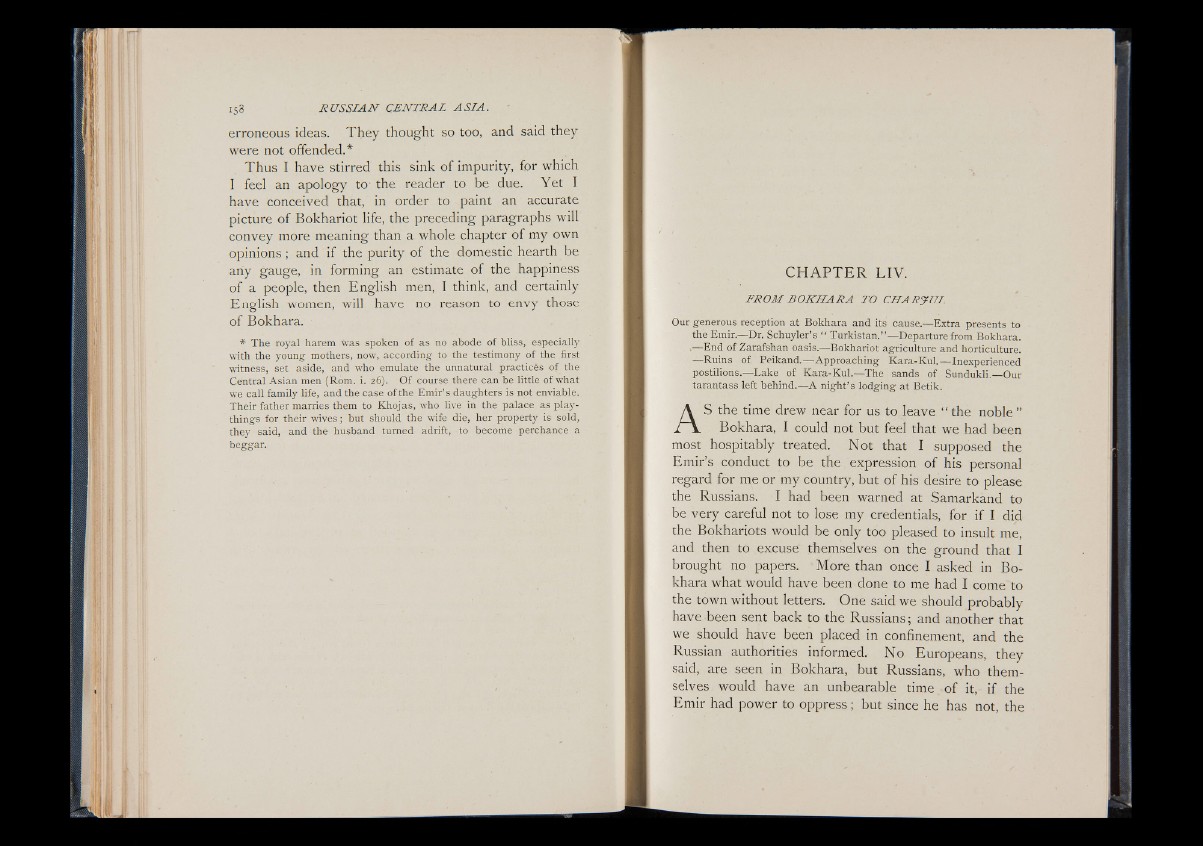
erroneous ideas. They thought so too, and said they
were not offended.*
Thus I have stirred this sink of impurity, for which
I feel an apology to the reader to be due. Y e t I
have conceived that, in order to paint an accurate
picture of Bokhariot life, the preceding paragraphs will
convey more meaning than a whole chapter of my own
opinions; and if the purity of the domestic hearth be
any gauge, in forming an estimate of the happiness
of a people, then English men, I think, and certainly
English women, will have no reason to envy those
of Bokhara.
* The royal harem was spoken of as no abode of bliss, especially
with the young mothers, now, according to the testimony of the .first
witness, set aside, and who emulate the unnatural practices of the
Central Asian men (Rom. i. 26). Of course there can be little of what
we call family life, and the case of the Emir’s daughters is not enviable.
Their father marries them to Khojas, who live in the palace as playthings
for their wives; but should the wife die, her property is sold,
they said, and the husband turned adrift, to become perchance a
beggar.
C H A P T E R L IV .
FROM BO KH AR A TO CHARJUI.
Our generous reception at Bokhara and its cause.— Extra presents to
the Emir.— Dr. Schuyler’s “ Turkistan.”— Departure from Bokhara.
End of Zarafshan oasis.— Bokhariot agriculture and horticulture.
— Ruins o f' Peikand.— Approaching Kara-Kul.— Inexperienced
postilions.— Lake of Kara-KuhH-The sands of Sundukli.— Our
tarantass left behind.—A night’s lodging at Betik.
AS the time drew near for us to leave “ the noble ”
Bokhara, I could not but feel that we had been
most hospitably treated. Not that I supposed the
Emir’s conduct to be the expression of his personal
regard for me or my country, but of his desire to please
the Russians. I had been warned at Samarkand to
be very careful not to lose my credentials, for if I did
the Bokhariots would be only too pleased to insult me,
and then to excuse' themselves on the ground that I
brought no papers. More than once I asked in Bokhara
what would have been done to me had I come to
the town without letters. One said we should probably
have been sent back to the Russians; and another that
we should have been placed in confinement, and the
Russian authorities informed. No Europeans, they
said, are seen in Bokhara, but Russians, who themselves
would have an unbearable time of it, if the
Emir had power to oppress; but since he has not, the